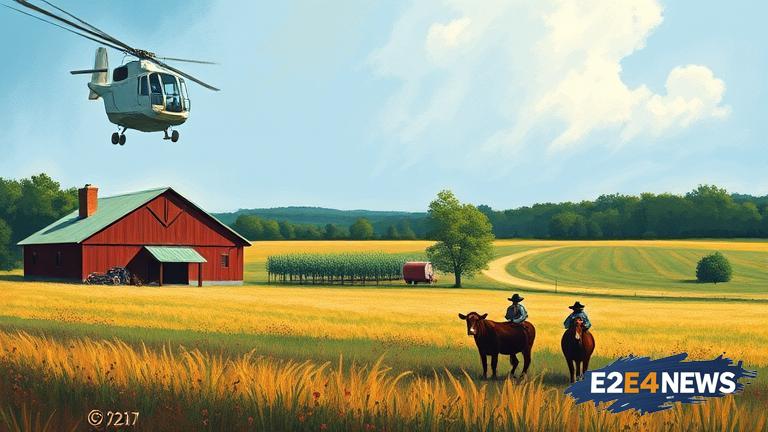The state of Missouri is taking significant steps to prioritize its farmers and ranchers, recognizing the vital role they play in the local economy and food production. With a strong agricultural heritage, Missouri is home to a diverse range of farms and ranches, from small family-owned operations to large-scale commercial enterprises. The state’s agricultural sector is a significant contributor to its economy, generating billions of dollars in revenue each year. However, farmers and ranchers in Missouri face numerous challenges, including unpredictable weather patterns, market fluctuations, and increasing regulatory burdens. To address these challenges, state officials are implementing initiatives aimed at supporting local agricultural producers. One key strategy is to promote Missouri’s agricultural products, both domestically and internationally, to increase demand and drive sales. This includes participating in trade missions, hosting agricultural events, and developing marketing campaigns to showcase the state’s farm-fresh produce. Additionally, the state is investing in agricultural research and development, focusing on innovative technologies and sustainable practices to enhance crop yields, improve animal health, and reduce environmental impact. Missouri is also committed to preserving its agricultural heritage, with programs aimed at preserving farmland, promoting agritourism, and supporting the next generation of farmers and ranchers. Furthermore, the state is working to strengthen its agricultural infrastructure, including upgrading rural roads, improving access to markets, and expanding broadband connectivity. By prioritizing its farmers and ranchers, Missouri is not only ensuring the long-term viability of its agricultural sector but also contributing to the state’s overall economic prosperity. The state’s agricultural industry is a significant employer, providing jobs for thousands of Missourians, from farmworkers to agricultural specialists. Moreover, the sector plays a critical role in maintaining the state’s natural resources, including its soil, water, and air quality. As the global demand for food continues to grow, Missouri is well-positioned to capitalize on this trend, with its fertile soil, favorable climate, and strategic location making it an ideal place for agricultural production. The state’s farmers and ranchers are also at the forefront of sustainable agriculture, adopting practices such as regenerative farming, organic production, and rotational grazing to minimize their environmental footprint. In addition, Missouri is home to a thriving agricultural education system, with numerous universities, colleges, and vocational schools offering programs in agricultural sciences, veterinary medicine, and related fields. The state’s agricultural community is also known for its strong sense of cooperation and collaboration, with many farmers and ranchers working together to share knowledge, resources, and best practices. As Missouri continues to support its farmers and ranchers, the state is poised to become a national leader in agricultural production, innovation, and sustainability. With its rich agricultural heritage, favorable business climate, and commitment to supporting local producers, Missouri is an attractive destination for agricultural investment, entrepreneurship, and talent. The state’s agricultural sector is also closely tied to its tourism industry, with many visitors drawn to Missouri’s rural landscapes, farm-to-table restaurants, and agricultural festivals. In conclusion, Missouri’s focus on supporting its farmers and ranchers is a strategic move to drive economic growth, promote sustainability, and preserve the state’s agricultural heritage. By prioritizing the needs of its agricultural producers, Missouri is ensuring a bright future for its farming and ranching communities, as well as the state’s economy and environment as a whole.
